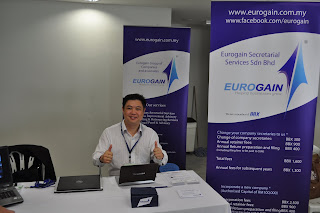 "In our previous post, we brought you the first part of an article from our legal department entitled ‘Company Law Reform in Malaysia: A Red Herring?’ We now continue with the second part of the critical analysis of the New Malaysian Companies (Amendment) Act 2007 that was supposed to address the problems in the Companies Act 1965, or does it?"
"In our previous post, we brought you the first part of an article from our legal department entitled ‘Company Law Reform in Malaysia: A Red Herring?’ We now continue with the second part of the critical analysis of the New Malaysian Companies (Amendment) Act 2007 that was supposed to address the problems in the Companies Act 1965, or does it?"Allow me to take you on a tour to find the red herring.
In the new section 131B, subsection (1) uses the word “must” in respect of business and affairs of a company. The section requires a company to be managed by the board of directors. However, the powers of the company director may be qualified by the company’s constitution, as provided in subsection (2) of the same section. Therefore, in theory at least, the company must be managed by the board, but the Act or articles can also validly take away all or a substantial portion of their powers. So is this where the red herring lie? This section apparently recognises the role of the board of directors, but does it really confer rights onto the directors?
A new section 132 (1F) was introduced in the Act which allows for the delegation of directors duties to a delegate or committee who may act in the directors’ capacity. The directors are, however bound by the actions of the delegatee and will be liable for acts and/or omissions of the latter. However, two defenses are afforded to the directors who delegate their duties. In section 132(1G)(a), it states that if the directors believed on reasonable grounds that the delegatee would exercise his powers in conformity with the mandate provided by the directors and the company’s constitution, the directors would not be held responsible. This section is, however silent in terms on the state of knowledge of the delegate and it therefore, raises some interesting questions. Must the directors be aware of the company’s constitution and does the delegatee have a duty to inform/ procure in writing his mandate and/or the constitution of the company? Does the delegatee have a duty to inquire further about the boundaries of the company’s constitution, so as to avoid acting ultra vires? These sections may seem to have conferred powers onto the directors to delegate their duties, however it is humbly submitted that it is of low practicality as the responsibility may be too vague to be of any benefit. May this be another red herring?
In section 132(1G)(b), it is a 3-prong test where, the directors have to believe on (1) reasonable grounds, (2) good faith and after making a (3) proper enquiry to ensure that the delegate was reliable and competent enough to perform the duties delegated to them. A burning question that begs answering is that, if the directors themselves lack knowledge about a particular delegated task, what then is the standard to determine the reliability and competency of the delegate? Is it based on the extent of knowledge of the director about the task delegated or based on his mere evaluation of the knowledge of the delagatee?
These questions and inconsistencies may only be solved by cases decided in courts by learned judges and the eloquent arguments by counsels attempting to make sense of these provisions, as it may seem that the new amendments in the Act may be insufficient to address the problems in the Malaysian Company Law. Only then we may capture the ever elusive red herring.
For more information or questions about Legal Matters please don't hesitate to contact us:
EUROGAIN Group
Legal Department
Call: 603-9100 1050
Email: andrew.wong@eurogain.com.my
Contact: Andrew Wong, Kevin Kiew, Dennis De Witt or Felicia Lee












